
The ketogenic diet has become very popular recently, and studies have found that this diet is low in carbohydrates, and relies heavily on fats to lose weight, so here are 15 foods allowed on the keto diet.
The keto diet usually forces you to eat 20 to 50 g of carbohydrates per day, and this may seem difficult for you, but by identifying the foods allowed in the keto diet, it will be easy for you.
Here are 15 foods that are allowed on the keto diet
1. Seafood
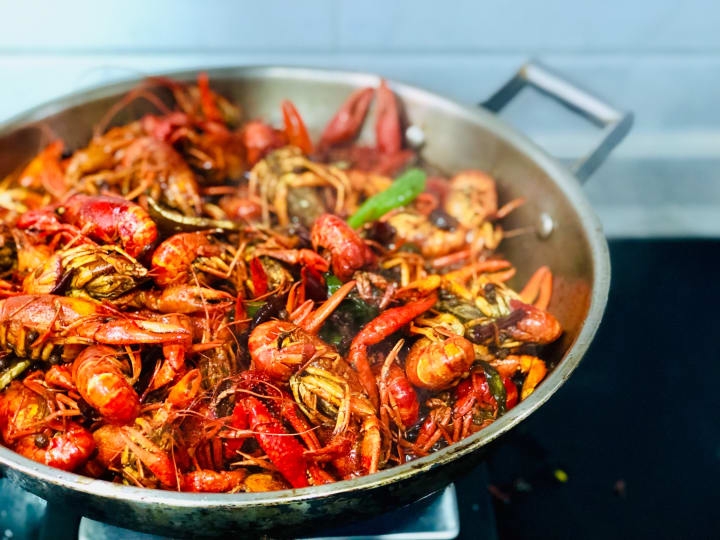
Fish and shellfish are among the foods allowed on the keto diet. Salmon and other fish are very rich in B vitamins and potassium but are virtually devoid of carbohydrates.
However, the percentage of carbohydrates in different types of shellfish and marine fish varies, but the percentage of carbohydrates in foods is very small, almost non-existent.
Among the most famous and important seafood allowed on the keto diet:
- Tuna fish.
- Mackerel.
- Oysters;
- Mussels.
- Octopus.
- Squid.
2. Low-carb vegetables
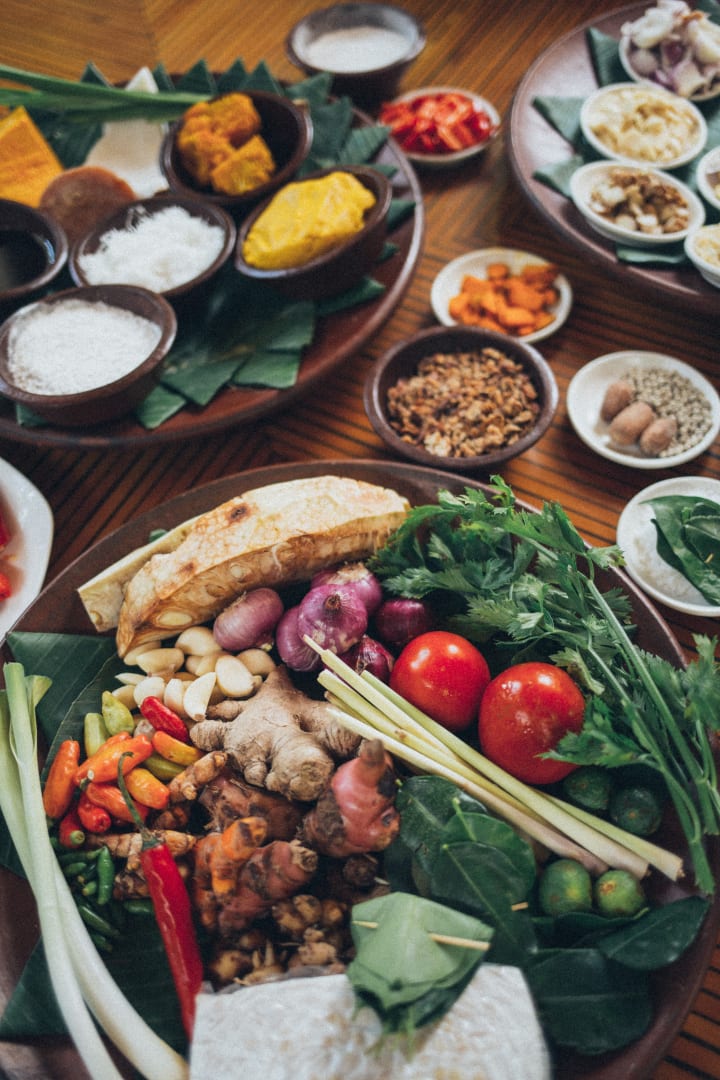
Non-starchy vegetables are low in calories and carbohydrates and are among the foods allowed on the keto diet, but they are rich in many nutrients and minerals such as vitamin C.
Cruciferous vegetables and vegetables such as kale, broccoli, and cauliflower are very low in carbs, as do zucchini.
The most common vegetables allowed on keto:
- Parsley.
- Watercress.
- Horseradish.
- Spinach.
3. Cheese is one of the foods allowed on the keto diet
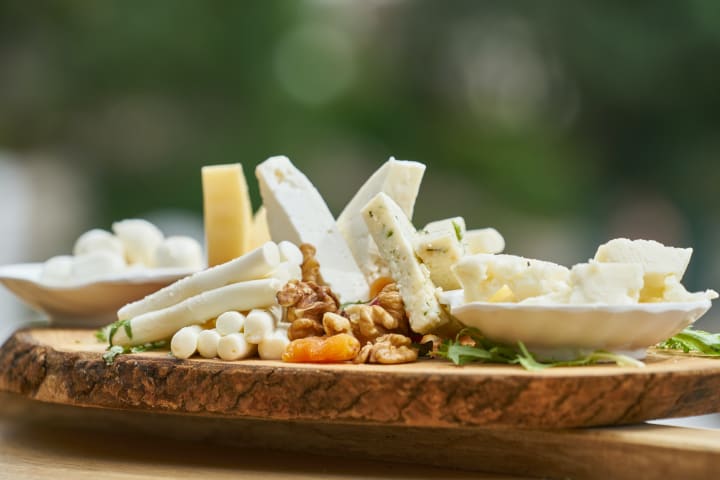
Cheese is nutritious and delicious. There are hundreds of cheeses out there, and fortunately, all of them are low in carbs and high in fat, making them a perfect fit for a ketogenic diet and a keto-allowed food.
It contains 28 g of cheddar cheese, 1 g of carbohydrates, 7 g of protein, and approximately 20% calcium.
Cheese is very saturated with fat and is, therefore, one of the foods allowed on the keto diet, and it has not yet been proven to increase the risk of heart disease, in fact, some studies indicate that cheese may help protect against heart disease.
Cheese also contains linoleic acid, which is very important in a ketogenic diet and is a fat linked to fat loss and improvements in body composition.
It can be said that cheese is rich in protein, calcium, and beneficial fatty acids, and contains very small percentages of carbohydrates, and this is what we need in the foods allowed in keto.
Among the most popular types of cheese allowed on keto are:
- Roquefort cheese.
- Cottage cheese.
- Cheddar cheese (yellow, red).
- Monster cheese.
- Parmesan cheese.
- Swiss cheese.
- Mozzarella cheese.
- Kiri cream cheese.
4. Avocado is one of the most important fruits allowed on the keto
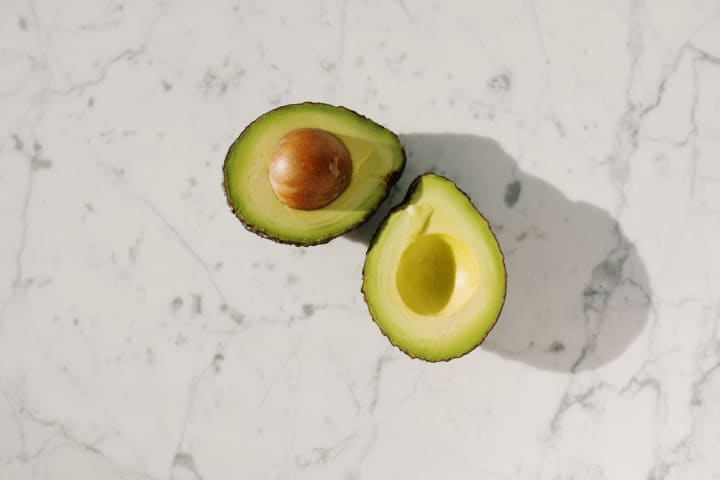
Avocado is an incredibly healthy fruit, as every 100 g of avocado contains 9 g of carbohydrates, and 7 g of every 9 g of carbohydrates is a fiber that is not absorbed by the body, so it can be said that every 100 g of avocado contain 2 g of carbohydrates.
Avocados are high in vitamins and minerals such as potassium, which is an important mineral that many people may not get enough of.
One study says that when a person eats a diet high in avocados, they may experience a 22% decrease in “bad” cholesterol and an 11% increase in “good” HDL cholesterol — so avocados are considered a keto food.
5. Meat and poultry are among the most important foods allowed on the keto
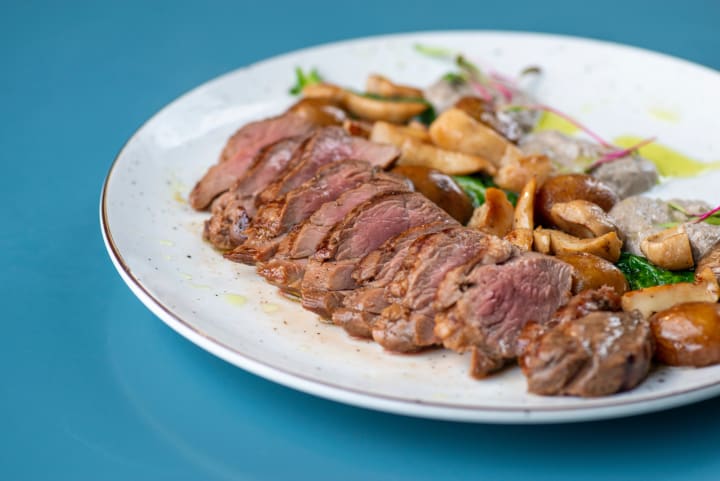
Meat and poultry are among the foods allowed on the keto diet, especially fresh ones because they are low in carbohydrates. They are also rich in B vitamins and many minerals such as potassium, selenium, and zinc.
Meat and poultry are also great sources of high-quality protein, which has been shown to help maintain muscle mass during dieting and weight loss.
One study in older women found that eating a diet high in fatty meats raised levels of “good” cholesterol by 8% than a diet low in fats and carbohydrates.
It is best to choose grass-fed meat, if possible. It can be said that meat and poultry do not contain carbohydrates and are rich in high-quality protein and many nutrients, so meat and poultry are among the foods allowed on the keto diet.
6. eggs
Eggs are one of the healthiest foods in the world and one of the foods allowed on the keto diet. One large egg contains less than 1 g of carbohydrates and less than 6 g of protein, making eggs an ideal food for a ketogenic lifestyle.
One of the reasons why eggs are allowed on the keto diet is that eggs have been shown to stimulate hormones that increase feelings of fullness and keep blood sugar levels stable, leading to reduced calories for up to 24 hours.
It's important to eat the whole egg, as most of the egg's nutrients are found in the yolk, and this includes the antioxidants lutein and zeaxanthin, which help protect eye health.
Although egg yolks are high in cholesterol, eating them does not raise cholesterol levels in most people. In fact, eggs seem to modulate LDL in a way that reduces the risk of heart disease.
7. Coconut oil
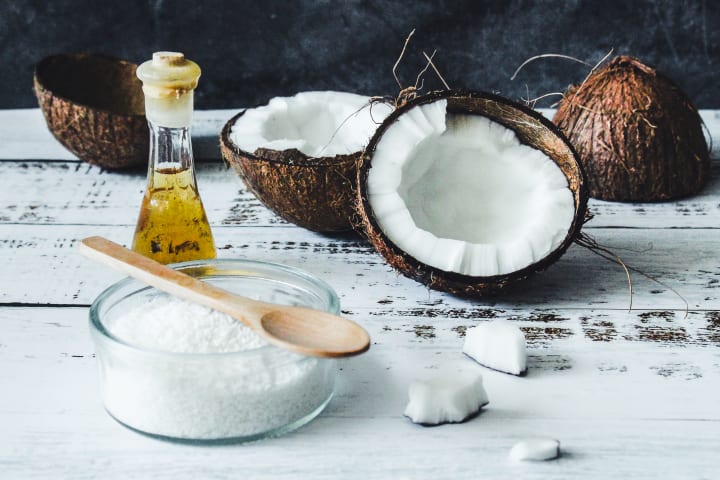
Coconut oil has unique properties that make it perfectly suitable for a ketogenic diet and is on the list of foods allowed on a keto diet. First of all, coconut oil contains medium-chain triglycerides (MCTs) Unlike long-chain fats, MCTs are absorbed directly from the liver and converted into ketones or used as a quick source of energy.
In fact, coconut oil has been used to increase ketone levels in people with Alzheimer's disease and other disorders of the brain and nervous system.
Coconut oil may help obese adults lose weight and belly fat. In one study, men who took 2 tablespoons (30 ml) of coconut oil daily lost weight from their waistline without making any other dietary changes.
8. Plain Greek Yogurt and Cottage Cheese
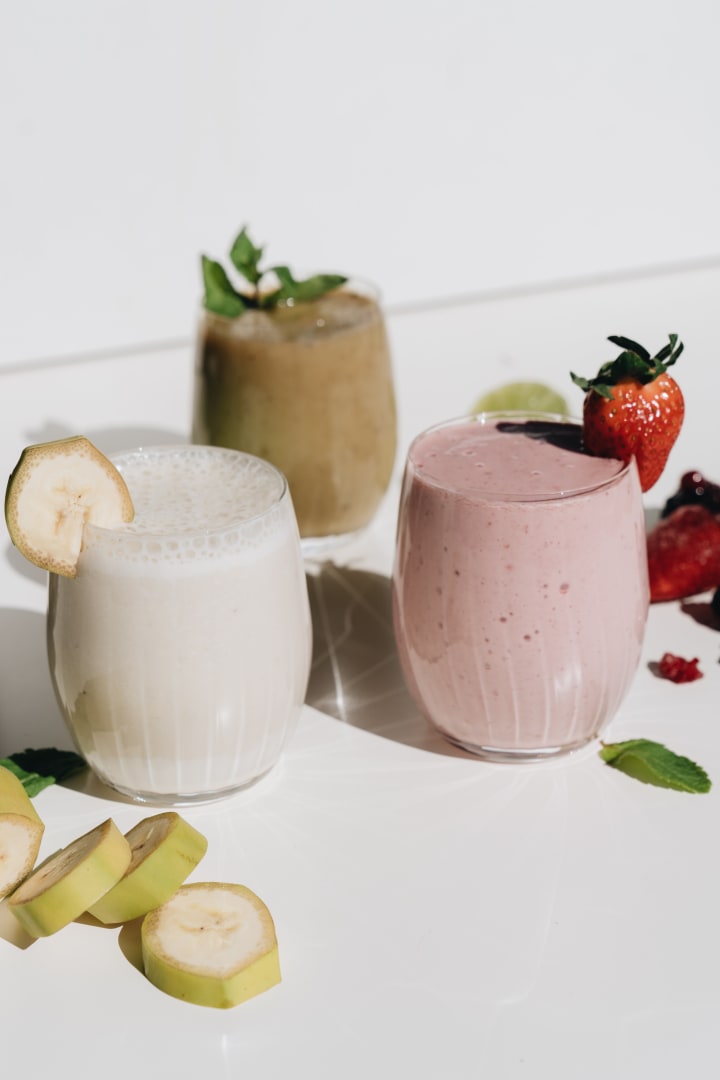
Plain Greek yogurt and cheese are healthy, high-protein foods that are allowed on the keto diet, and while they do contain some carbohydrates, they can still be included in the keto diet.
150 g of plain Greek yogurt provides 5 g of carbohydrates and 11 g of protein, this amount of cheese provides 5 g of carbohydrates and 18 g of protein.
Both yogurt and cottage cheese have been shown to help reduce appetite and promote feelings of fullness, so they are among the most important foods allowed on the keto diet.
9. Olive oil
Olive oil is one of the foods allowed on the keto diet. Olive oil provides great benefits for your heart. It is high in oleic acid, a monounsaturated fat that has been found to reduce heart disease risk factors in several studies.
Additionally, extra-virgin olive oil is high in antioxidants known as phenols. These compounds protect heart health by reducing inflammation and improving arterial function.
Olive oil does not contain any carbohydrates. It is an ideal base for healthy salad dressings and mayonnaise. It is best to use olive oil for low heat cooking or add it to foods after they have been cooked.
10. Nuts and seeds
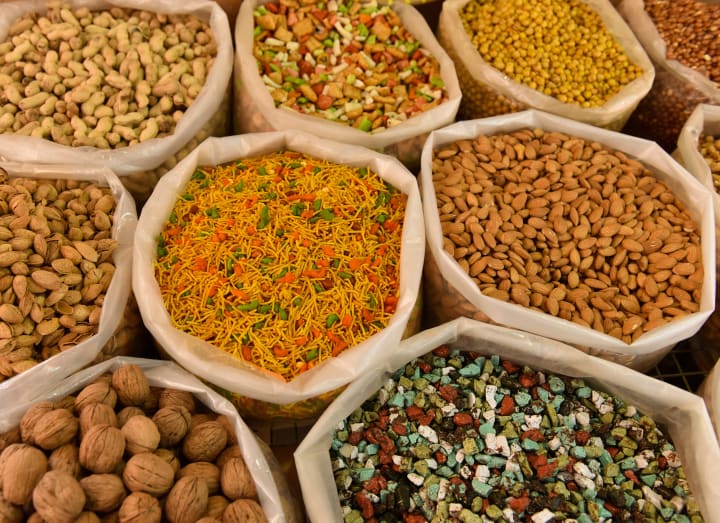
Nuts and seeds are allowed on the keto diet. Nuts and seeds are high in fat and low in carbohydrates. Frequent consumption of walnuts and almonds has been linked to a lower risk of heart disease, some types of cancer, depression, and other chronic diseases.
Furthermore, nuts and seeds are rich in fiber, which can help you feel full and absorb fewer calories overall.
Although all nuts and seeds are low in carbohydrates, the percentage of carbohydrates in each type is different.
Here are the carbs in 28 g of some common nuts and seeds:
- Almonds: 3 g net carbs (6 g total carbs).
- Brazil nuts: 1 g net carbs (total 3 g carbs).
- Cashews: 8 g net carbs (9 g total carbs).
- Macadamia nuts: 2 g net carbs (4 g total carbs).
- Pecans: 1 g net carbs (4 g total carbs).
- Pistachios: 5 g of net carbs (total 8 g of carbs).
- Walnuts: 2 g net carbs (4 g total carbs).
- Chia seeds: 1 g net carbs (12 g total carbs).
- Flaxseeds: 0 g net carbs (8 g total carbs).
- Pumpkin seeds: 4 g net carbs (5 g total carbs).
- Sesame seeds: 3 g net carbs (total 7 g carbs).
11. Berries are one of the foods allowed on the keto diet
Most fruits are high in carbs on a ketogenic diet, but berries are an exception, because berries are low in carbs, high in fiber, and are among the top foods allowed on a keto diet.
In fact, berries contain a lot of fiber. These little fruits are loaded with antioxidants that are credited with reducing inflammation and protecting against disease.
Here are the carbohydrates in 100 g of berries:
- Blackberries: 5 g net carbs (10 g total carbs).
- Blueberries: 12 g net carbs (14 g total carbs).
- Berries: 6 g net carbs (12 g total carbs).
12. Butter and cream

Butter and cream are good fats to include in a ketogenic diet and are among the top foods allowed on a keto diet, as they each contain minimal amounts of carbohydrates.
For many years, butter and cream were believed to cause or contribute to heart disease due to their high saturated fat content. However, several large studies have shown that for most people, saturated fats are not linked to heart disease.
In fact, some studies suggest that moderate consumption of high-fat dairy products may reduce the risk of heart attack and stroke.
Like other fatty dairy products, butter and cream are rich in conjugated linoleic acid, a fatty acid that may promote fat loss.
13. Olives are one of the foods allowed on the keto diet
Olives provide the same health benefits as olive oil, but in its solid form, Oleuropein contains the main antioxidants found in olives, has anti-inflammatory properties, and may protect your cells from damage.
Additionally, studies show that olive consumption may help prevent bone loss and lower blood pressure. Olives vary in carbohydrate content due to their size. However, half of the carbohydrates come from fiber, so their digestible carbohydrate content is very low.
Every 28 g of olives contains 2 g of total carbohydrates and 1 g of fiber, so olives are one of the foods allowed on the keto diet.
14. Unsweetened coffee and tea with sugar
Coffee and tea are healthy and carbohydrate-free drinks, so keto foods contain caffeine, which increases your metabolism and may improve physical performance, alertness, and mood.
What's more, coffee and tea drinkers have been shown to have a significantly reduced risk of developing diabetes, in fact, those with higher intakes of coffee and tea have the lowest risk of developing diabetes.
15. Dark Chocolate and Cocoa Powder
Dark chocolate and cocoa are delicious sources of antioxidants, so chocolate is a keto food. In fact, cocoa is called a “superfruit,” because it provides at least the same antioxidant activity as any other fruit, including blueberries and regular berries.
Dark chocolate contains flavanols, which may reduce the risk of heart disease by lowering blood pressure and keeping arteries healthy.
It is somewhat surprising that chocolate can be part of a ketogenic diet, however, it is important to choose dark chocolate that contains at least 70% cocoa solids.
28 g of unsweetened chocolate (100% cocoa) contains 3 g of net carbs, the same amount of dark chocolate 70-85% contains up to 10 g of carbs.
Summary:
The ketogenic diet can be used to achieve weight loss, blood sugar control, and other health-related goals.
Fortunately, it can include a variety of nutritious, tasty, and varied foods that will allow you to lose weight. To follow a ketogenic diet, you should eat these foods on a regular basis.
About the Creator
Jhon Quero
John quero, blogger and cooker, is passionate about writing about healthy eating, weight loss, and many other topics
Instagram: https://www.instagram.com/myketoslow/






Comments
There are no comments for this story
Be the first to respond and start the conversation.